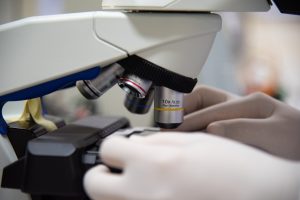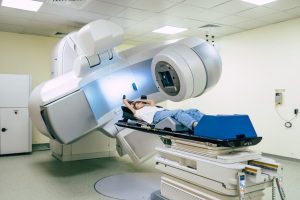
2026 Cancer Statistics
Cancer Death and Diagnosis Statistics for 2026: 2 RCCA Oncologists Provide Insights into the Numbers The latest statistics from the American Cancer Society (ACS) detail
HIPAA Alert: Potential Data Breach Learn More
Questions on Oncology, Hematology and/or Infusion Clinical Services due to COVID-19 Crisis – CALL 833-698-1623
Important Information for Our Patients Regarding the Coronavirus.
RCCA Providing Area Cancer Patients with Access to Care During Coronavirus Outbreak
RCCA Offering Patients Virtual Visits During Coronavirus Pandemic
You probably know that smoking is the biggest risk factor for lung cancer. Did you know, however, that non-smokers may still be at risk? Regional Cancer Care Associates (RCCA) is one of the nation’s largest networks of cancer specialists, serving patients in New Jersey, Connecticut, Massachusetts, and the Washington, D.C., area. Here, we discuss lung cancer in non-smokers to help people understand their risk and know when to seek medical evaluation for signs of potential lung cancer.

If you don’t smoke, you have eliminated one of the most significant risk factors for lung cancer. However, this does not mean you’re invulnerable. Non-smokers may still develop lung cancer, especially when other risk factors are at play. In fact, in the United States, about 10% to 20% of lung cancer diagnoses occur in people who have smoked fewer than 100 cigarettes in their lifetime.
Understanding the full range of risk factors is essential. If you know your risk level, you can take proactive measures to reduce your chances of developing lung cancer.
Several factors can increase lung cancer risk in non-smokers. Genetics often play a role. Inherited mutations in a number of genes, including BRCA1 and BRCA2, can significantly increase the likelihood of developing lung cancer. If a person has a family history of lung cancer, he or she can request predictive genetic testing to determine whether they carry a high-risk mutation.
In other cases, environmental factors may increase lung cancer risk. Exposure to the following substances has been linked to a significantly increased risk of lung cancer:
To reduce your risk of lung cancer, the best thing to do is to not smoke. However, you can also have your home tested for radon and, if the gas is detected, take measures to reduce radon concentrations for a safer living space. Limiting your exposure to secondhand smoke is also an effective risk-reducer, as is a balanced diet that incorporates a variety of fruits and vegetables.
Lung cancer screening is not typically recommended for non-smokers. However, if you have a family history of lung cancer or are routinely exposed to substances that increase your risk, you should speak with your primary healthcare provider about being screened.
You should also talk with your healthcare provider if you are experiencing any signs and symptoms of lung cancer. These are similar for both non-smokers and smokers and include:
The symptoms listed above can be caused by any number of conditions, so having one or more of them does not mean that you necessarily have lung cancer. However, it does mean that you should see your physician promptly for evaluation. If your physician determines that you are at increased risk for lung cancer, whether due to genetics, carcinogen exposure, or symptoms, the doctor may order lung cancer screening. The earlier cancer is diagnosed, the more treatment options are available to you – and the more effective they are likely to be.
Evaluation of potential lung cancer starts with a physical exam and a review of the patient’s medical history. The physician may also order medical imaging. This could include:
If medical imaging identifies anything unusual, it will be followed by a biopsy. This test typically involves removing a small number of cells from the lung to examine them for signs of cancer. A biopsy can confirm whether the abnormality is cancerous and, if so, whether it has spread outside the lung.
Lung cancer is treatable. Treatment outcomes are best, however, when the cancer is caught early. If you’ve been diagnosed with lung cancer, you can find the latest treatments – including targeted therapy and immunotherapy – at Regional Cancer Care Associates. We treat all types of cancer at more than 20 locations in New Jersey, Connecticut, Massachusetts, and the Washington, D.C., area. To learn more about lung cancer in non-smokers, contact us today at an RCCA location near you.
Can non-smokers get lung cancer?
Yes. Although smoking is one of the biggest risk factors for lung cancer, non-smokers can still develop lung cancer.
What type of lung cancer is usually diagnosed in non-smokers?
Adenocarcinoma is the most commonly diagnosed lung cancer in non-smokers. This type of cancer starts in the outer areas of the lungs in mucus-producing cells. It tends to grow more slowly than other forms of lung cancer, making it less likely to spread. However, it can still metastasize if left untreated.
What treatment options are available for lung cancer?
Surgery and radiation play central roles in the treatment of lung cancer. Several types of medication also are prescribed to attack cancerous cells and prevent their spread or recurrence. RCCA offers a wide variety of treatments for lung cancer, including chemotherapy, immunotherapy, and targeted therapies. We also provide patients with access to clinical trials evaluating the latest lung cancer treatments.
What types of cancer do RCCA oncologists treat?
RCCA’s specialists treat the full range of cancer types, including breast, prostate, colon, and lung cancers. They also treat a variety of blood disorders.
For more information or to schedule an appointment,
call 844-346-7222. You can also schedule an appointment by calling the RCCA location nearest you.

Cancer Death and Diagnosis Statistics for 2026: 2 RCCA Oncologists Provide Insights into the Numbers The latest statistics from the American Cancer Society (ACS) detail

If you’ve been diagnosed with breast cancer, you may have heard radiation therapy discussed as part of your treatment plan. This approach is commonly used

Cancer and its treatment often impact a person’s quality of life. In the case of prostate cancer, a man’s sex life may be affected. Sexual

Regional Cancer Care Associates is one of fewer than 200 medical practices in the country selected to participate in the Oncology Care Model (OCM); a recent Medicare initiative aimed at improving care coordination and access to and quality of care for Medicare beneficiaries undergoing chemotherapy treatment.